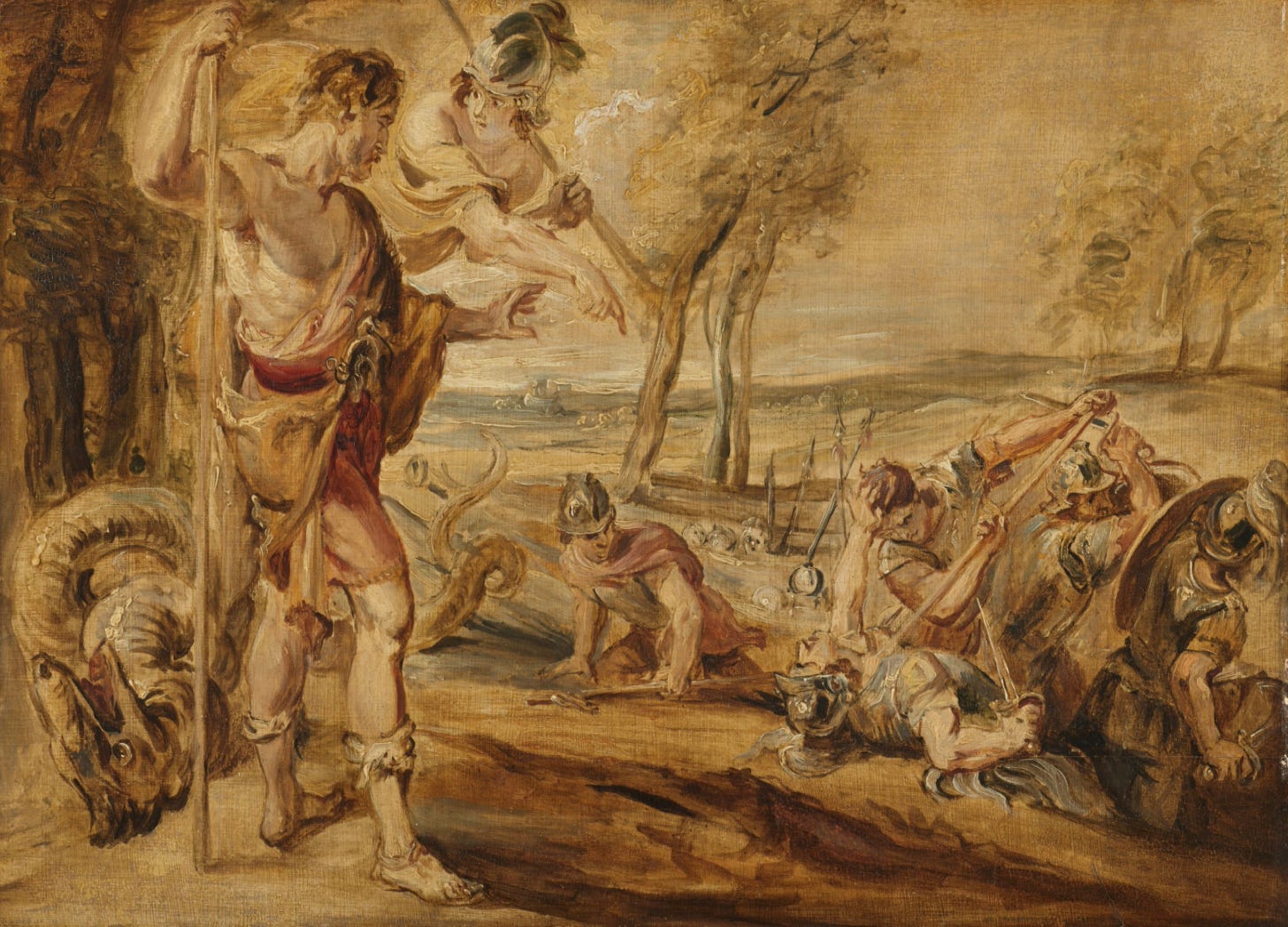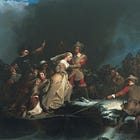A Memoir of 4th Generation Warfare
William Bradford's 'History of Plymouth Plantation'
In October of 1989, a remarkable article appeared in two American military journals. Called The Changing Face of War: Into the Fourth Generation, this twice-published piece began by noting that both the US Army and US Marine Corps of that time were struggling to adapt to a revolution in the art of war on land that had begun more than seventy years before. (Called both ‘maneuver warfare’ and ‘third generation warfare’, this was the set of perceptions, presumptions, and practices pioneered by the Stosstruppen of the First World War, epitomized by the Blitzkrieg virtuosos of the middle years of the twentieth century, and described in the lectures of America’s premier military theorist, John R. Boyd.)
Building upon this observation, the authors of the article - all of whom were leaders in the maneuver warfare movement within the US Armed Forces - posed a question. If the approach we are trying to adopt is already seven decades old, they wondered, could it not be time for the next revolution? If this is the case, they added, what might this ‘fourth generation warfare’ look like?
The tentative answers provided in the article proved remarkably prescient. The authors of The Changing Face of War imagined a future in which entities other than nation states waged war. Defined by various combinations of kinship and religion, these groups would combine direct strikes (‘terrorism’) with cultural influence, alliances (both local and global), and trade (often in socially disruptive goods) in order to ‘improve their capacity for independent action’. 1
Over the course of the past summer, a deep dive into the history of the Plymouth colony (in what would become the American state of Massachusetts) reminded me that this sort of warfare is far from new. In particular, I came to the conclusion that the memoirs of William Bradford, the leader of that curious community for close to thirty years, offers much to the student of fourth generation warfare.
To begin with, the events that Governor Bradford describes take place in the early seventeenth century, a time when few polities asserted, let alone enforced, monopolies on organized violence. (Marvelous to say, the Dutch Republic, which Bradford left in order to take up residence in the New World, provided the great exception to this general rule.) Thus, the Pilgrims were obliged to evade (at considerable cost) the haunts of pirates, deal with a wide variety of private entities, and prepare to cross swords with any one of a large number of potential opponents. (The latter included both the continual enemies of the government of his home country and, should unfavorable winds blow through Westminster, agents of the same kingdom.)
Furthermore, when making tradeoffs between the defense, à tous azimuths, of Plymouth and the other needs of that plantation, Bradford answered to a ‘body politick’. Thus, the man who walked a post along the palisade that surrounded the settlement, served the guns mounted on the roof of the meeting house, or went on a long-range patrol with Miles Standish, was either a fully-franchised citizen of a remarkably direct democracy or a young man who looked forward to attaining that status in the very near future.
Finally, in addition to corsairs of the cutlass-carrying sort, Bradford had to deal with many ‘pirates of the pen’. Indeed, the damage done to the finances of the colony by fraudsters greatly exceeded the losses that resulted from the capture, by Algerian freebooters, of a ship carrying a load of beaver pelts that the Pilgrims hoped to sell in Europe. In much the same way, the delicate relationship between Bradford and his Wampanoag allies suffered greatly from a persistent scam run by no less of a person than the eponymous hero of Squanto, Friend of the Pilgrims.2
Readers looking for accounts of firefights and or details of the mounting of ‘great ordinances’ will find little about those subjects in Bradford’s book. At the same time, they will encounter long passages that deal with both the spiritual ideals of the community he led and the interactions between the colony and various persons - whether investors, authorities, or the aforementioned confidence men - in England. To a certain degree, this emphasis stems from the division of labor at Plymouth between Bradford and his military assistant, Miles Standish. (Alas, Captain Standish left no memoirs.) At the same time, the stress Bradford places on religion and relationships reflects the central importance of those things to the health and, indeed, the survival of the colony.
Sources:
William S. Lind, Keith Nightengale, John F. Schmitt, Joseph W. Sutton, and Gary I. Wilson ‘The Changing Face of War : Into the Fourth Generation’ Marine Corps Gazette (October 1989) and Military Review (October 1989)
William Bradford The History of Plymouth Colony (New York: D. Van Nostrand, 1948)
William Bradford The History of Plymouth Plantation (Boston: Massachusetts Historical Society, 1856)
The two editions of Bradford’s book list represent the oldest of the many versions available on Archive.org and the newest. Readers looking for print-and-paper editions will discover a comparable richness of options.
For Further Reading:
The phrase ‘improve their capacity for independent action’ comes from John R. Boyd (Chet Richards and Chuck Spinney, editors) The Strategic Game of ? and ? (Defense and the National Interest, June 2006)
Written by Clyde Robert Bulla, Squanto, Friend of the Pilgrims enjoyed, for most of the second half of the last century, a place of particular honor in American elementary schools .







Bottom line is, the more advanced society is, the more planning and advanced, long range thinking has to go into getting anything done.
What was the real difference between the Conquistadors and the Aztecs? It was the level of thinking and production that went into arming, equipment, and tactics. And even then, explorers with much more advanced technology (i.e. Magellan) could be slaughtered by primitives if they got overconfident and failed to use the advantages they had - and it's no coincidence Magellans' specific flaw was conversion to religious, mystical thinking.
In the same way, today drones, advanced aircraft, tracking technology, AI, could all be negated by failing to apply them. In a word, Afghanistan. Revolutions in technology only become revolutions in warfare if the Generals know how to apply them - and if Afghanistan is any indication, that is frightening.
Not sure how well the "generations of warfare" schema has held up.
It seems, as you note here, that all of these issues and methods have always existed, and that civil and military leaders must be willing and able to use all available means to secure their communities and defeat their enemies.